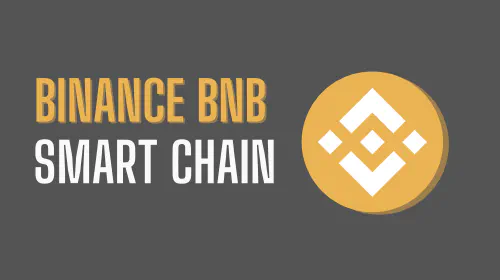History of Quantum Computing: Origins, Milestones, and Current Advancements
Salomon Kisters
Jul 12, 2023This post may contain affiliate links. If you use these links to buy something we may earn a commission. Thanks!
Quantum computing is a fascinating and rapidly evolving field that has the potential to revolutionize various industries, from cryptography to drug discovery.
In this blog post, we will take you through the history of quantum computing, exploring its origins, major breakthroughs, and current advancements.
So, buckle up and get ready to dive into the world of quantum computing.
Early Beginnings
To understand the origins of quantum computing, we must first delve into the development of quantum mechanics. In the early 20th century, scientists, such as Max Planck and Albert Einstein, began to challenge the classical view of physics. They discovered that energy is transferred in tiny, discrete packets called “quanta” or “photons” rather than as a continuous wave.
These findings set the stage for the emergence of quantum mechanics, which introduced a new way of understanding the behavior of particles at a quantum level. Notable contributions were made by Niels Bohr, Werner Heisenberg, and Erwin Schrödinger, who formulated the mathematical framework behind quantum mechanics and introduced the wave-particle duality concept.
From Quantum Mechanics to Quantum Computing
While the foundation of quantum mechanics was being laid, the idea of harnessing quantum properties for computation started to take shape. In 1981, the concept of quantum computing was first proposed by physicist Richard Feynman during a lecture at MIT. Feynman hypothesized that quantum systems could simulate quantum behavior more efficiently than classical computers, particularly for solving physics-related problems.
Following Feynman’s groundbreaking suggestion, several key developments brought quantum computing closer to reality. In 1985, David Deutsch, a British physicist, introduced the concept of a universal quantum computer. Deutsch’s work laid the groundwork for the development of algorithms that could run on quantum computers, overcoming some of the limitations of classical computing.
Milestones in Quantum Computing
Quantum Teleportation (1993)
In 1993, Charles Bennett and his team at IBM published a breakthrough paper that demonstrated quantum teleportation. This process involves transferring the quantum state of one particle to another without physically moving the particle itself. While this might sound more like science fiction than a practical application, quantum teleportation is an essential building block for quantum communication and cryptography.
2Shor’s Algorithm (1994)
Peter Shor, a mathematician at Bell Labs, devised a quantum algorithm in 1994 that had the potential to break RSA encryption, a widely used encryption method for secure communication. Shor’s algorithm demonstrated that quantum computers could outperform classical computers when it comes to factoring large numbers. This breakthrough made the world take notice of quantum computing’s potential for cryptography and ushered in a new era of research and development.
Quantum Entanglement (1997)
Quantum entanglement, often referred to as “spooky action at a distance” by Einstein, Podolsky, and Rosen, is one of the most intriguing aspects of quantum mechanics. In 1997, a team of scientists led by Anton Zeilinger conducted an experiment that confirmed the existence of quantum entanglement.
They demonstrated that particles can become entangled, sharing a relationship where the state of one particle instantaneously affects the state of its entangled partner, regardless of the physical distance between them. This phenomenon forms the foundation of future quantum communication networks.
Quantum Supremacy (2019)
In 2019, Google claimed to have achieved quantum supremacy, a significant milestone in the field of quantum computing. They designed a quantum processor, named Sycamore, that solved a specific problem in just 200 seconds, a task that would take even the most powerful supercomputers thousands of years to complete. While the achievement itself may not have immediate practical applications, it highlights the potential of quantum computing to outperform classical systems in certain domains.
Current Advancements in Quantum Computing
Today, quantum computing continues to advance at an unprecedented pace. Numerous companies, including IBM, Microsoft, Google, and startups like Rigetti and IonQ, are investing heavily in the development of quantum hardware and software.
Quantum computers are primarily categorized as either qubit-based or annealing-based systems. Qubit-based computers harness the unique properties of quantum bits (qubits), such as superposition and entanglement, to perform calculations. Annealing-based computers, on the other hand, rely on the concept of quantum annealing to solve optimization problems.
Researchers are actively working on increasing the number of qubits, improving their coherence, and reducing error rates in qubit-based systems. They are also exploring quantum error correction techniques to mitigate the impact of environmental noise and errors that occur during quantum computations.
Conclusion
From its inception in the early 20th century to the recent achievements in quantum supremacy, the field of quantum computing has come a long way.
What was once a theoretical concept is now on the brink of becoming a practical reality. Quantum computing has the potential to revolutionize industries by performing computations beyond the capabilities of classical computers.
While there are still many challenges to overcome, the history of quantum computing has shown us that progress can be swift and groundbreaking. As researchers and engineers continue to push the boundaries of what’s possible, we can expect quantum computers to become increasingly more powerful and play a significant role in shaping the future of technology.
So, keep a close eye on this fascinating field, as quantum computing promises to bring about a new era of computational possibilities that we are only just beginning to comprehen
Stay informed with the latest insights in Crypto, Blockchain, and Cyber-Security! Subscribe to our newsletter now to receive exclusive updates, expert analyses, and current developments directly to your inbox. Don't miss the opportunity to expand your knowledge and stay up-to-date.
Love what you're reading? Subscribe for top stories in Crypto, Blockchain, and Cyber-Security. Stay informed with exclusive updates.
Please note that the Content may have been generated with the Help of AI. The editorial content of OriginStamp AG does not constitute a recommendation for investment or purchase advice. In principle, an investment can also lead to a total loss. Therefore, please seek advice before making an investment decision.

Navigating Technology Ethics in Social Work Practice
Learn how to navigate technology ethics in social work practice. This blog post explores the challenges and considerations for ethical technology use.

Understanding Ethical Hacking: A Proactive Approach to Enhance Security Defenses
Ethical hacking, also known as white-hat hacking, involves breaking into systems with permission to identify vulnerabilities. It is a proactive measure to enhance security defenses.

What is a BNB Smart Chain Address?
Discover the ins and outs of BNB Smart Chain and Binance. Learn how to create, use, and secure your BNB Smart Chain address today!
Protect your documents
Your gateway to unforgeable data. Imprint the authenticity of your information with our blockchain timestamp